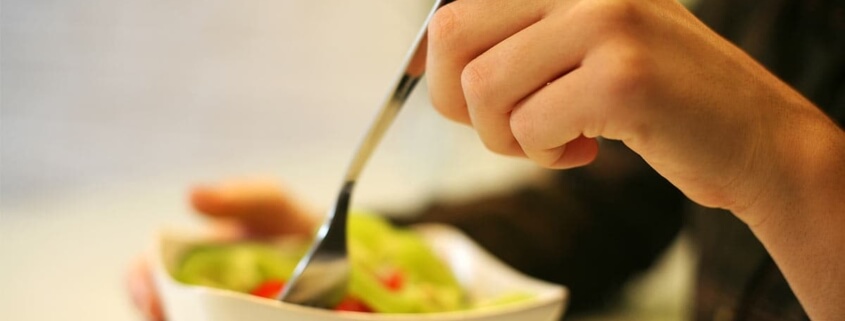20 Tips to Safely Eat Less for Weight Loss
Weight loss is, at its most basic, just a simple formula. If you eat fewer calories than you burn, you lose weight. Of course, it’s not quite so simple when you add the human elements—like will power and making smart choices—into the mix.
But ultimately, losing weight requires consuming less calories, burning more calories with increased physical activity, or ideally both. For the purposes of this article, we’re just concerning ourselves with eating fewer calories. That too only works a few ways: You eat less and/or you eat lower-calorie foods.
For now, I just want to give you some tips to help you eat less. That’s probably the more important side of things. If you’re overweight, your body needs to adjust to feeling satisfied with less food. That’s a big part of developing a healthier lifestyle in which you eat appropriate serving sizes at appropriate times, which in turn help you keep the weight off in the long run.
How to Eat Less
These are some pretty simple and straightforward ways to cut down on how much you eat over the course of the day. All of them will help you eat less often, have smaller quantities, or both.
- Drink water throughout the day to help keep your belly full; also, you can mistake thirst and dehydration for hunger.
- Don’t skip meals; it just makes you hungrier and more prone to overeating at your next meal.
- Eat small, nutritious snacks between each meal so you’re not excessively hungry at meal time.
- Include a protein source in every meal and snack to feel more satisfied for longer.
- Eat a well-balanced daily diet that includes nutrient-dense whole foods from all the food groups; along with being harmful, nutritional deficiencies make you crave food.
- Serve your food on smaller dishes; you take less and avoid feeling deprived when you see a lot of empty space on your plate or in your bowl.
- Similarly, drink out of tall, skinny glasses if you’re having a beverage with calories.
- Look at the serving sizes on nutrition labels and actually eat that amount.
- Eat good carbs, not refined grains and simple sugars that make your blood glucose levels spike and crash; you get hungry again soon after eating when that happens.
- Portion out your food ahead of time, when you’re not hungry, especially for meals and snacks you tend to hurriedly squeeze in or grab on the go.
- Put the rest of the food away after you take your serving; you’re much more likely to take extra helpings if the food’s still in reach while you’re eating it.
- Never eat directly out of the package.
- Eat slowly and chew your food thoroughly; it takes a little while to register that you’re no longer hungry, and too many people rush through their food, overeating before they realize they don’t need any more.
- Pay attention to your body’s hunger cues and only eat when you’re genuinely hungry; eating out of boredom and stress is so common!
- Also pay attention to your body’s fullness cues and stop eating when you’re no longer hungry; remember, the goal isn’t to feel stuffed, it’s just to not feel hungry anymore.
- Refrain from doing anything else while you eat, like watching TV, reading, or scrolling down your Facebook feed; this distracts you from your body’s cues and makes it easy to mindlessly overeat.
- Don’t clear wrappers, scraps, or dirty dishes right away; studies have shown people tend to keep eating more if the evidence of how much they’ve already had is removed from sight.
- Chew a strongly flavored gum while baking and cooking; it’ll keep you from tasting and noshing through the process.
- Go for a walk around the block or go up and down a flight of stairs when you’re about to eat out of boredom or due to an emotional trigger.
- Make a firm rule that the kitchen closes at one or two hours before bedtime; you’ll get used to it and it’ll help prevent those extra late-night snacks.
- Brush your teeth after your final healthy snack of the evening; it sends the message to your brain that you’re done eating for the day.



